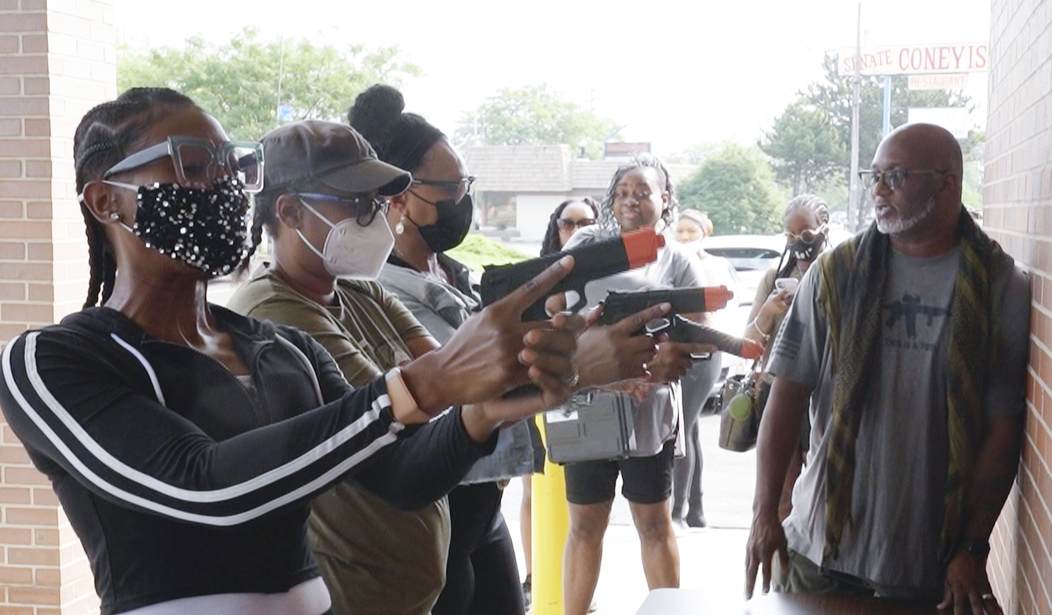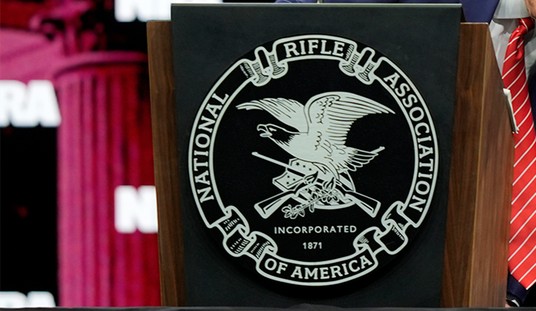There are many reasons why newspapers are seeing declining circulation numbers these days, and they don’t all involve the actual content produced by media outlets. Still, there’s something to the idea that Americans are just tuning out some news outlets based on their biased reporting, and I’d like to think that the Connecticut Mirror is going to be handling some customer cancellations after a member of the paper’s editorial board let loose this ridiculous take on the Second Amendment to the public at large.
Gov. Ned Lamont has presented a new $64 million gun-control package and he has set his sights on ghost guns and gun buy-backs. Some of his proposals are smart and strong, while others merely sound smart and make us feel good.
But until we change the way that we understand and debate the issue, we are not likely to have an impact on the epidemic of guns and gun violence in Connecticut.
Even the most passionate advocates for gun control legislation qualify their remarks by saying, “I respect the 2nd Amendment and the right of every citizen to own guns…” This concession relinquishes 50 yards of playing field even before the debate has begun.
The NRA and gun manufacturers love that most Americans are passively doing their rhetorical work for them. So, let’s re-adjust our understanding of the 2nd Amendment.
I respect the 2nd Amendment, but it’s got nothing to do with an individual’s right to bear arms.
If you can’t even acknowledge what the Second Amendment is all about, how on earth could you have any respect for it? No, what Mark Robinson really respects are the anti-gun talking points of guys like Saul Cornell, who Robinson cites as authoritative proof that the Second Amendment doesn’t mean what it says.
According to “A Well Regulated Right: The Early American Origins of Gun Control,” by Saul Cornell and Nathan DeDino, during the decades after the Revolutionary War, the sale of firearms was forbidden to Catholics, slaves, indentured servants, and Native Americans. And contrary to the images of the “Wild West” from movies, frontier towns of the 1800s often required visitors to surrender their guns to the sheriff before entering the town.
In U.S. v Miller in 1936, the Supreme Court ruled on a case involving the National Firearms Act, (which was passed after the St. Valentine’s Day Massacre). In that case, the Court ruled unanimously that the 2nd Amendment pertains to militias and not to individual rights.
For nearly 80 years, the doctrine established by US v. Miller; the 2nd Amendment as a “collective right” and not an individual right, has been considered “established law” and the controlling precedent by the tcourt.
his nation had the Comstock laws in federal statute for roughly the same amount of time t, but no one seriously argued that those restrictions meant that the First Amendment wasn’t about protecting freedom of speech. And eventually the Comstock laws were declared unconstitutional by the Supreme Court, just as Washington, D.C.’s outright ban on handguns was thrown out by the Court as a violation of the Second Amendment.
When SCOTUS issued its decision in Heller, by the way, it didn’t have to overrule the decision in Miller, which contrary to Robinson’s claims never said anything about who the Second Amendment applies to. Instead, SCOTUS talked about the type of weapons that were/are protected by the Second Amendment; those most useful to service in a militia.
On today’s Cam & Co I talked about a new op-ed that argues the Second Amendment should be repealed outright, but Robinson doesn’t see any need for that. Instead he wants to simply pretend that the Second Amendment means something other than what it says. The commonality in those two seemingly disparate positions is that both depend on avoiding reality at all costs; paying no attention to the fact that there is no mass movement capable of repealing the right to keep and bear arms and ignoring both the plain text of the Bill of Rights as well as what the Supreme Court, Congress, and state legislatures have had to say about that right over the past 231 years.
These arguments are also a reminder of the fundamental unseriousness of the gun control movement. The idea that we can ever simply ban our way to safety is ridiculous. It didn’t work with Prohibition, and it certainly wouldn’t work in a nation with 100-million gun owners and some 400-million privately owned firearms. But this is still very much the end goal of the gun control movement, no matter how unrealistic it may be. And as long as that’s what they’re fighting for, gun owners will keep fighting to not only preserve, but to strengthen and secure our fundamental and individual right to keep and bear arms.









